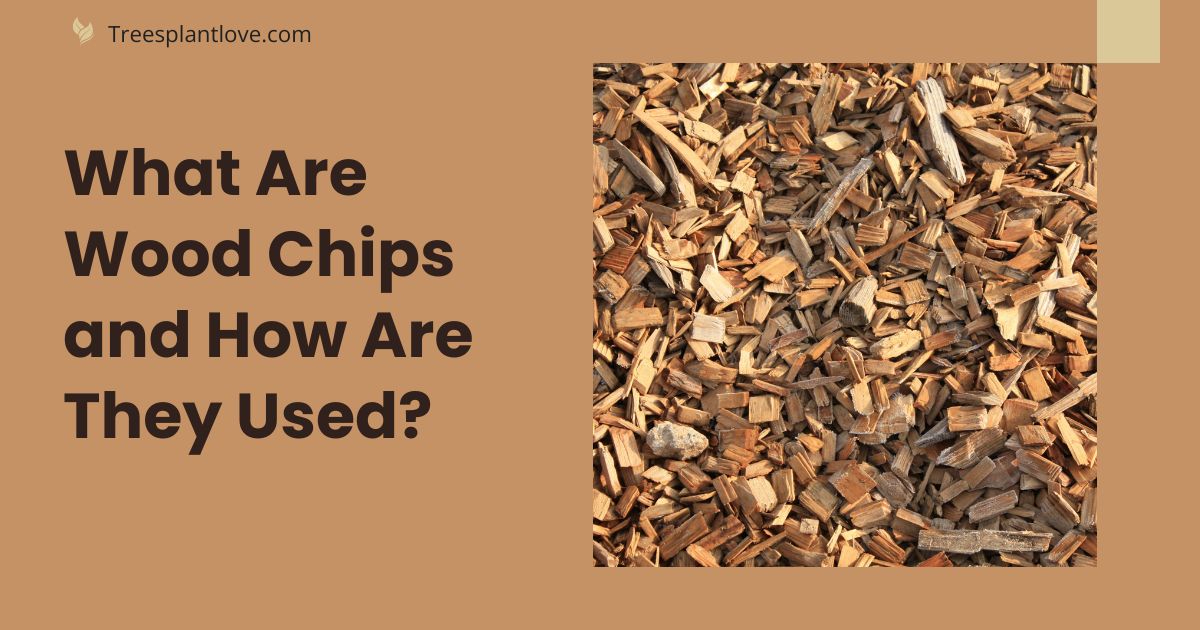
What Are Wood Chips and How Are They Used? Uses and Benefits Explained
What Are Wood Chips and How Are They Used?: Wood chips are small, fragmented pieces of wood that are often produced as a byproduct of various wood processing activities. These versatile materials are created by chipping larger pieces of wood such as logs, branches, and twigs.
Depending on the size of the chips, they can vary from tiny slivers to larger, more irregular chunks. Wood chips are widely used in a variety of industries, offering both functional and environmental benefits.
In this article, we’ll explore what wood chips are, their various uses, and the environmental advantages they provide.
Key TakeawaysÂ
- Definition of Wood Chips: Wood chips are small, fragmented pieces of wood created by chipping logs, branches, or other wood byproducts. They vary in size and shape and are made from both hardwoods and softwoods.
- Common Uses of Wood Chips:
- Mulching: Wood chips are used in gardening and landscaping to retain moisture, suppress weeds, and improve soil health.
- Animal Bedding: They are widely used as absorbent bedding for farm animals and pets due to their moisture-wicking properties.
- Energy Production: Wood chips serve as a renewable biofuel for generating electricity and heat in biomass power plants.
- Paper Production: Wood chips are a primary raw material for making paper and cardboard.
- Erosion Control: They help prevent soil erosion when used as ground cover on slopes or disturbed land.
- Environmental Benefits:
- Wood chips are a sustainable and renewable resource that can reduce waste by utilizing byproducts from timber processing.
- They offer a carbon-neutral alternative to fossil fuels when used for energy production.
- Wood chips help improve soil health by adding organic matter when used as mulch or compost.
- Sustainability and Waste Reduction: Wood chips are often made from leftover or discarded wood, such as tree trimmings and sawmill byproducts, promoting waste reduction and efficient use of resources.
- Other Uses:
- Water Filtration: Wood chips can be used in water treatment systems to filter impurities.
- Soundproofing and Insulation: Their fibrous structure allows them to absorb sound and improve thermal insulation in construction.
Wood chips are an environmentally friendly and versatile material with a wide range of practical applications across multiple industries.
What Are Wood Chips?
Wood chips are created by mechanically chipping or shredding logs, branches, or even other wood byproducts such as sawdust. The resulting chips typically range in size from a few millimeters to several centimeters across, and they are often irregular in shape. The wood type used can impact the texture and composition of the chips, with hardwoods (like oak and maple) generally producing denser, more durable chips than softwoods (like pine and spruce).
Wood chips can be made from both newly cut timber and recycled wood from other processes, such as construction debris or tree trimming. This sustainability factor makes wood chips an eco-friendly material for a wide range of applications.
How Are Wood Chips Used?
Woodchips have a broad array of uses across different industries. Below are some of the most common applications:
Mulching in Gardens and Landscaping
One of the most popular uses of wood chips is in landscaping and gardening. As mulch, they are spread across soil to help retain moisture, suppress weeds, and improve soil health. Wood chips decompose slowly, providing long-lasting coverage and nutrients as they break down. They also help in regulating soil temperature, making them ideal for both hot and cold climates.
Certain wood types, like cedar, are also used for their aromatic properties, which can help repel insects such as mosquitoes and termites.
Animal Bedding
Wood chips are widely used as bedding for animals in farms, stables, and pet enclosures. Their absorbent properties make them ideal for soaking up moisture from animal waste and keeping areas dry and odor-free. Hardwood chips, especially those from pine or aspen, are particularly favored for this purpose. They provide a comfortable and natural bedding option for animals such as horses, chickens, rabbits, and even exotic pets.
Energy Production (Biofuel)
Wood chips are a renewable energy source used in biomass power plants to generate electricity and heat. The chips are burned to produce steam, which drives turbines and generates energy. Wood chips are considered an environmentally friendly alternative to fossil fuels because they are renewable and produce less carbon dioxide when burned. In some cases, wood chips are even converted into biofuels such as wood pellets.
Paper and Pulp Production
In the paper industry, wood chips are one of the primary raw materials for the production of paper and cardboard. The chips undergo a chemical or mechanical process to break down the cellulose fibers and convert them into pulp. The pulp is then processed into paper products. Since wood chips are a cost-effective and readily available resource, they play a crucial role in the paper manufacturing process.
Erosion Control
In areas prone to soil erosion, wood chips are used as an erosion control measure. When spread over bare soil, they help protect the surface from wind and water erosion by holding the soil in place. They can be particularly effective on slopes or construction sites where disturbed soil is at risk of washing away during rainstorms.
Soil Amendment and Composting
Wood chips are often incorporated into composting processes. When added to compost piles, they help balance the carbon-to-nitrogen ratio, which is essential for the decomposition process. They also add structure to the compost, improving air circulation and water retention, which results in richer, more fertile soil for gardening.
Soundproofing and Insulation
Wood chips have also found uses in soundproofing and thermal insulation. Their fibrous nature allows them to absorb sound and reduce noise levels, making them useful in construction, particularly in walls and ceilings. In addition, their natural insulative properties help to keep buildings warm during cold months and cool during hot seasons.
Water Filtration
Wood chips can be used in water filtration systems, especially in situations where water treatment is needed for small-scale or local operations. The chips can be used to filter impurities, pollutants, and chemicals from water, often in conjunction with other filtering materials. This is particularly common in the treatment of wastewater or in rural communities with limited access to advanced water treatment facilities.
Environmental Benefits of Wood Chips
Wood chips offer several significant environmental advantages:
- Renewable Resource: Since wood chips are made from trees, which are renewable, they offer a sustainable option for various uses. Unlike fossil fuels, which are finite and polluting, wood chips can be replenished through responsible forest management practices.
- Carbon Sequestration: While burning wood chips does release carbon dioxide, they are considered carbon-neutral over their lifecycle. Trees absorb carbon dioxide as they grow, and this carbon is released back into the atmosphere when the wood chips are burned, creating a closed carbon cycle. Additionally, wood chips used in products like mulch help lock carbon into the soil as they decompose.
- Waste Reduction: Wood chips are often made from leftover materials that would otherwise go to waste, such as tree trimmings or sawmill byproducts. This helps reduce overall waste and provides a productive use for materials that would otherwise be discarded.
- Soil Health: When used as mulch or in composting, wood chips improve soil quality by adding organic matter and encouraging beneficial microbial activity, promoting healthier ecosystems in gardens and farms.
Conclusion
Wood chips are an incredibly versatile and eco-friendly material with a broad range of uses. From improving soil health in gardens to generating renewable energy, these small pieces of wood offer significant functional and environmental benefits.
As industries continue to focus on sustainability, the demand for wood chips is likely to increase, making them a valuable resource for the future. Whether you are landscaping your garden or seeking eco-friendly alternatives for energy, wood chips provide a natural and effective solution.

Leave a Reply